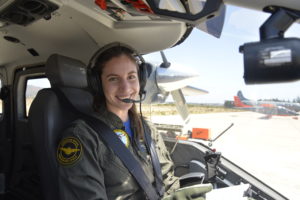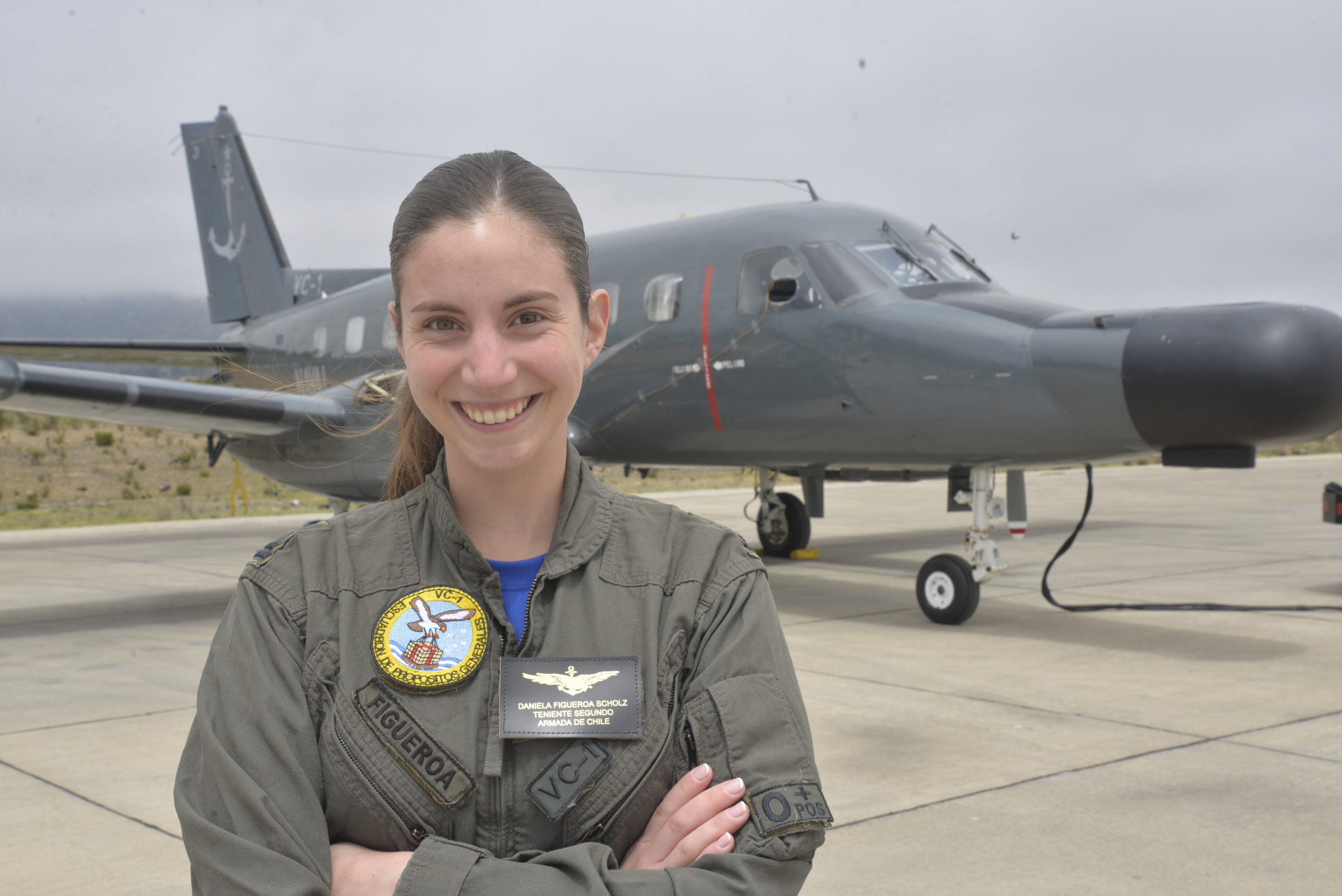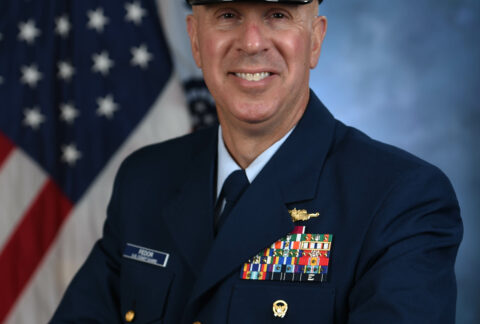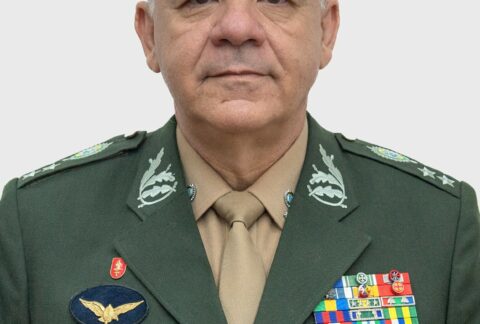The Chilean Navy, created in 1817, has a female pilot in its ranks for the first time in its history. On October 14, 2021, Lieutenant Junior Grade Daniela Figueroa Scholz finished the Naval Aviation course at the top of her class, fit to fly the Pilatus PC-7. Lt. j.g. Figueroa spoke with Diálogo about her achievements and goals for the future.
Diálogo: You are the first female pilot in the Chilean Navy. What does your achievement represent for the women in the Chilean Navy?
Chilean Navy Lieutenant Junior Grade Daniela Figueroa Scholz: Being the first female pilot in the Navy is an achievement, a source of pride, and a great responsibility for me, since the course was very demanding and a great majority of applicants who take it do not pass. My intention is to invite women to dare to try what they really like, and not to clip their own wings.

Diálogo: When and why did you decide to enroll?
Lt. j.g. Figueroa: In 2011, the opportunity to join the Naval School opened up. My father was a sailor, and when he met my mother he retired from the Navy for various reasons; however, he always instilled in us respect, values, and love for the Navy. My house was a kind of small naval training school. We liked to listen to anthems, watch military marches, and celebrate naval festivals and observances, and we hoisted the national flag. My dad was also a private pilot, and would take us flying with my siblings. For this reason, I believe that sailing and aviation have been my passions since I was little.
Diálogo: What capabilities does one need to fly the Pilatus PC-7 training aircraft, and how is it different from your current P68 Observer 2?
Lt. j.g. Figueroa: I learned to fly with the Pilatus PC-7, and I developed various capabilities such as multitasking and interpreting three-dimensional information, in order to have situational awareness to allow me to operate the aircraft safely, among other skills. Currently, I belong to the VC-1 General Purpose Squadron, and I’m qualifying to fly the P68 Observer 2, which has several missions, such as search and rescue of people and oversight of fishing inspections, among others.
Diálogo: How do you combine being a sailor and an aviator in your missions? What do you like most about your profession?
Lt. j.g. Figueroa: Being a sailor is not just a job, but rather a lifestyle. What’s attractive about this profession is that it entails service and dedication to the homeland; but I really think that deep down one of the most attractive things is the diversity that this naval military career offers us. In my case, I work in naval aviation as a pilot, but I can, in a couple of years, for example, sail and train on support vessels in the south, to help connect isolated territories.
Diálogo: Do you recall any particular challenges you may have faced during your military career?
Lt. j.g. Figueroa: I have been in the military for about 10 years, and this is my second year as a lieutenant junior grade. I think one of my biggest challenges has been to become a great leader. I remember that I was 21 years old when I graduated from the Naval Academy, and when they assigned me to the patrol ship PSG-73 Isaza, I was in charge of older personnel who were very experienced in navigation. At that time, I understood that a leader must have the ability to command their subordinates, so that orders are carried out, not only because one has military seniority, but because the subordinates actually trust that the order received was the best option. It was a very rewarding experience for me.
Diálogo: What is needed to have more gender equality in the Chilean Navy?
Lt. j.g. Figueroa: The Navy has made a significant effort to integrate women into its ranks. The only way to create more equality is not with opportunities in the Navy, but for women to apply, since there is a great difference between the number of men and women who sign up to join the institution. I remember that, back in the day, there were 98 applicants, and only nine of us were women, a massive gap in the percentage of applicants.
Perhaps, what we need is for women to see that belonging to the Armed Forces is not a matter of opportunities, because at least here in naval aviation it doesn’t matter whether you are a man or a woman; what matters is having the capabilities and meeting the requirements to graduate and pass the course; this is not a gender issue.
To watch the entire interview with Chilean Navy Lieutenant Junior Grade Daniela Figueroa Scholz, please visit this link: https://dialogo-americas.com/articles/first-female-pilot-marks-milestone-in-the-chilean-navy-lt-j-g-daniela-figueroa/#.Yf1jG1XMLZ5









